Is Your Face Darker Than Your Body? – Causes, Treatments, And Remedies
The sun, hormones, cosmetics products, and more can play a key role in darkening your face.

Image: Shutterstock
Having a face darker than the body is not uncommon. Most of us face this issue, and it is quite natural to wonder about the same. Several reasons make your face darker than your body, but do not worry. We can offer you some simple home remedies and treatments to help you get back the same color on your face as the body. This article discusses the different causes of skin darkening and ways to manage it. Keep reading.
In This Article
Why Is Your Face Darker Than Your Body?: The Possible Reasons
1. Overexposure To The Sun

Did you know that your facial skin experiences more damage than other parts of your body due to the suns rays? The harmful UV rays from the sun are responsible for skin darkening and sun damage. You can observe this color change when you are out in sunlight for a few hours. UV rays can deeply penetrate your skin layers and stimulate melanin (pigment) production.
Melanin is responsible for your skin color. It also protects your skin from UV damage. However, your skin produces more melanin when you are exposed to the sunlight (1). This is one of the main causes for your face being darken than your body. It can also cause age spots that appear as tan, brown, or black marks on your skin causing an uneven skin tone (2).
An online survey conducted on 31,162 respondents found that 34.2% had experienced sunburn in 2015. Participants between 18 -29 had a prevalence rate of 51.2%. It was further noted that the prevalence rate of sunburns was 42.5% in non-Hispanic white people, 29.7% in Hispanic, and 13.2% in Black participants.
2. Hormonal Issues
An increase in estrogen levels in the body may lead to increased skin pigmentation. This condition is known as melasma. You usually notice it in women who are on oral contraceptive pills or hormone replacement therapy and pregnant women.
This skin disorder mainly occurs due to sun exposure, hormonal changes during pregnancy, photosensitizing drugsi Medications that can increase sensitivity to light or drugs that cause an adverse reaction to sun exposure. , and steroidsi Biologically active compounds or anti-inflammatory medications used to treat a range of conditions. (3). You can observe brown patches on the skin that look similar to age spots. Also, genetics play a key role in the case of this skin disorder. That means you are likely to have melasma if people in your family have melasma.
Abnormal cortisoli An essential hormone produced by the adrenal glands that regulate a wide range of vital processes throughout the body. level is also said to cause estrogen imbalance in the body (4). This then increases melanin production which, in turn, causes darkening of the skin (5).
3. Irritating Cosmetic Products
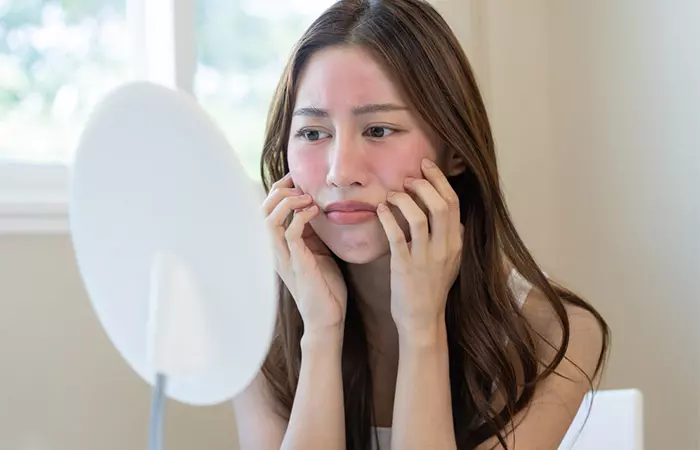
Most of the skin care products that you put on your face contain harmful chemicals that are harsh on your skin. These chemicals may cause dry patches, age spots, and discoloration. They may also contain some ingredients that are susceptible to darkening in the sun. Also, some cosmetic products cause acne outbreaks and make your face even darker.
4. Autoimmune Diseases
A few autoimmune diseases can cause inflammation in your facial skin. Diseases like lupus can change your skin color (6).Vitiligo is also an auto-immune disease caused due to the loss of melanocytes which manifests as lighter-colored patches on darker skin (7). Discoloration can also be the first symptom of diabetes (8). Also, if you have any kidney-related disease, your skin color may turn dark (9).
5. Medications
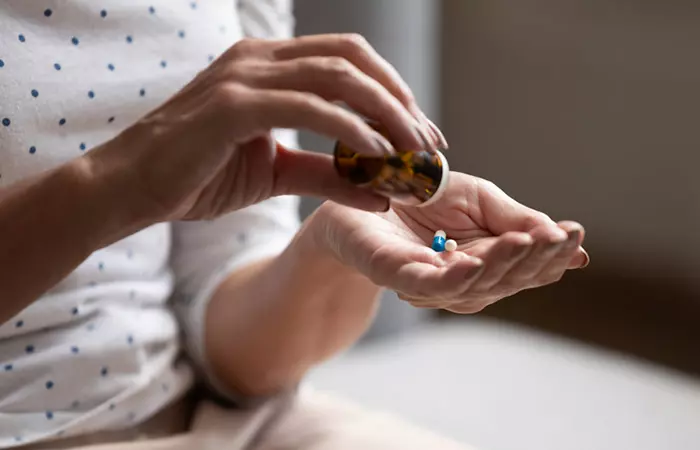
Intake of certain medications can cause hyperpigmentation on your face. Non-steroidal anti-inflammatory, antimalarial, and cytotoxic drugs may cause skin discoloration (10). They can impart a gray tone to your skin.
These are the reasons for facial skin darkening. If you are wondering how to treat hyperpigmentation and looking for natural ways to brighten your skin, check out the next section for some home remedies.
Home Remedies You Should Try
- Aloe Vera: Aloesin, a compound derived from aloe vera, is effective in treating pigmentation issues (11). This active compound works as a depigmenting agent and inhibits melanin production. You can apply it regularly to your face.

- Tea Tree Oil: Tea tree oil is considered to be effective in treating pigmented skin. The antimicrobial and anti-inflammatory properties of tea tree oil reduce the severity of acne lesionsi Abnormal changes of the skin compared to the surrounding tissue caused by trauma or certain medical conditions. (12). You can use it regularly to see results.
- Orange Peel: Orange peel contains an active compound called hesperidin that lightens the skin (13).

- Vitamin C: Citrus fruits like oranges and lemons are a good source of vitamin C. Vitamins can treat several skin problems like skin darkening (14). It protects your skin from UV damage and free radicals while reducing hyperpigmentation (15). You can opt for over-the-counter creams or serums that contain vitamin C.
- Almond Oil: Almond oil is known for its antioxidant and photoprotective qualities, and its alpha-tocopherols can combat wrinkles and uneven pigmentation. Vitamin E is another prominent component of almond oil that can treat hyperpigmentation by inhibiting tyrosinase, a key enzyme responsible for pigmentation. Notably, vitamin E shows limited effectiveness in treating pigmented conditions like chloasma (melasma) when used by itself. However, it has been found to display a notable improvement in skin pigmentation issues when used in combination with vitamins A and C. Almonds also contain niacin, which has shown promise in enhancing complexion (16).
- Licorice Extract: According to a study, licorice extract is effective against hyperpigmentation. It works by dispersing melanin, inhibiting its production, and reducing free radicals. Glabridin, the key component, helps prevent UVB-induced pigmentation and has anti-inflammatory properties. While promising, further research is needed to confirm its effectiveness in reducing dark spots (17).
 Quick Tip
Quick TipThere are several treatment options to address this skin concern. Scroll down to know more!
Key Takeaways
- Some factors, such as hormonal issues or overexposure to sunlight, are responsible for the darker skin on your face.
- The problem can be addressed with simple home remedies such as vitamin C or aloe vera face masks, as well as retinoids or kojic acid.
- Applying sunscreen diligently and only using skin care products made for your skin type can help prevent your skin from getting darker.
Best Treatment Options To Improve This Condition
1. Retinoids
Retinoids are derivatives of vitamin A. They are used to treat many skin issues, like acne and signs of aging. They help to reduce age spots by improving cell turnover. Also, they are used to treat post-inflammatory hyperpigmentation.
2. Kojic Acid
is used for skin lightening. It is used to treat skin hyperpigmentation, melasma, and wrinkles (19). It lightens the skin by inhibiting the production of tyrosine (an amino acid) that is responsible for the production of melanin. You can find kojic acid in many cosmetic products such as gels, creams, and lotions.
3. Hydroquinone
Hydroquinone is a standard depigmentation and skin-lightening agent used in many medicated creams (20). When applied to your skin, it regulates melanin production, reduces dark spots, and lightens your skin tone.
4. Salicylic Acid
Salicylic acid
prevents acne formation by disrupting cellular functions and stimulating natural exfoliation (21). This skin-lightening acid peels off the outer layer of your skin and allows new skin cells to be regenerated.
5. Niacinamide
Niacinamide is a form of vitamin B3. It can improve the appearance of aging facial skin and hyperpigmented spots on the face (22). It reduces the sebum production on the face and works as an excellent treatment for acne (23).
6. Alpha Hydroxy Acids
Alpha hydroxy acids (AHAs) are natural water-soluble acids that exfoliate the skin to reduce comedone formation (21). They reduce the appearance of acne scars, age spots, and minimize discoloration.
7. Glycolic Acid
Glycolic acid peels work to exfoliate your skin by removing dead skin cells from your face. It lightens your skin tone and decreases the risk of post-inflammatory hyperpigmentation (23). If you are taking any topical medicines, avoid using glycolic acid.
You can also opt for laser treatments that can speed up the process of removing the outer layer of your skin. However, laser therapies and other dermatology procedures are expensive compared to the other options mentioned above.
You can prevent your facial skin from getting dark. Find out how in the next section.
How To Prevent Your Face From Getting Dark
- Always use skin care products that are suitable for your skin type to avoid any unwanted skin problems.
- Use any skin-lightening cream that is suitable for your skin type.
- Don’t forget to apply sunscreen whenever you go out. Also, try to wear a hat, scarf, or sunglasses while going outside. They will protect your face from tanning and harmful UV rays.
- While buying any cosmetic product, do check the product label. Also, avoid products with harsh chemicals that can damage your skin. Do not fall into the trap of using harmful products for the sake of unrealistic beauty standards which will end up causing more damage.
- Make sure to remove your makeup every day before you go to sleep. Otherwise, it can lead to rashes or other skin issues.
- Exfoliate your skin regularly. It helps remove dead cells and promotes new growth, preventing darkening. Use a gentle exfoliator 1-2 times a week for a brighter, healthier complexion.
Apart from these, you may also try home remedies for skin pigmentation and balance your uneven skin tone. Jasmine Ama, a vlogger, documented her personal seven-day experience of using a homemade rice flour and dairy product mask for skin brightening. She applied the mask daily before shower and allowed it to dry. Although she experienced a minor breakout, on the sixth day, she observes on her blog: “My skin looks significantly better; it looks so much brighter. I don’t have many breakouts, and it [the skin] just looks firmer (i).”
 Quick Tip
Quick TipInfographic: Most Common Reasons Why Your Face Is Darker Than Your Body
Most of us always blame the sun for making our skin dark. Yes, it is right to blame it on the sun’s harmful rays. However, there are other common reasons of which we are not aware. Are you wondering why your skin is getting darker without sun exposure? Check out the infographic to learn the most common reasons that can make your face darker than the body.
Some thing wrong with infographic shortcode. please verify shortcode syntax
Overexposure to the sun, hormonal imbalances, harsh cosmetic products, medications, and medical conditions may result in having a face darker than your body. If you are looking for natural alternatives, you can use ingredients such as aloe vera, tea tree oil, or orange peel to inhibit the production of melanin and lighten your skin. You can also opt for medical treatment such as retinoids, kojic acid, or salicylic acid for exfoliating your skin and boosting cell regeneration. You can also take simple steps such as removing makeup, using sunscreen, and products that are suitable to your skin for preventing your facial skin from becoming dark.
Frequently Asked Questions
Why is my face darker without sunlight?
Hyperpigmentation is the most common cause of skin darkening without exposure to the sun. This is a condition where the body produces extra melanin, the pigment responsible for skin color.
What foods make your skin lighter?
Some of the foods that can make your skin lighter are:
Is it safe to use skin-lightening products?
Some people use skin lighteners all over their bodies to alter their skin tone, but this can be very dangerous. Bleaching can result in mercury poisoning because mercury is an active ingredient in some skin lighteners. Mercury is a poisonous substance that can result in severe neurological, kidney, and psychiatric issues. Even if you are looking into how to bleach your skin, it is important to be aware of the risks involved and using them too often.
Can makeup help even out my skin tone?
Makeup products like concealers and foundations help cover uneven skin tones.
Can skin lighten with age?
The skin’s epidermis thins with age, meaning that a lesser number of melanocytes, or pigment-containing cells, are present. This can make fairer skin tones appear paler.
- Carrot
- Yogurt
- Cucumber
- Sesame seeds
- Kale
- Orange
- Strawberry
- Avocado
- Tomato
If you are concerned about having a face that is darker than your body, watch this video for expert advice and solutions to achieve a more balanced complexion and regain your confidence.
Personal Experience: Source
StyleCraze's articles are interwoven with authentic personal narratives that provide depth and resonance to our content. Below are the sources of the personal accounts referenced in this article.
i. How I how I brightened my skin in 6 days| realistic and natural way to reduce hyperpigmentation,https://www.youtube.com/watch?v=PQweRMRGwL8
References
Articles on StyleCraze are backed by verified information from peer-reviewed and academic research papers, reputed organizations, research institutions, and medical associations to ensure accuracy and relevance. Read our editorial policy to learn more.
- Sun-Exposed Skin Color Is Associated with Changes in Serum 25-Hydroxyvitamin D in Racially/Ethnically Diverse Children
https://www.ncbi.nlm.nih.gov/pmc/articles/PMC4807642/ - Aging spots – should you be concerned?
https://medlineplus.gov/ency/article/002086.htm - Melasma: a clinical and epidemiological review
- Cortisol abnormality as a cause of elevated estrogen and immune destabilization: insights for human medicine from a veterinary perspective
https://pubmed.ncbi.nlm.nih.gov/15050110/ - The Role Of Estrogens And Estrogen Receptors In Melanoma Development And Progression
https://www.ncbi.nlm.nih.gov/pmc/articles/PMC6535286/ - LUPUS AND YOUR SKIN: SIGNS AND SYMPTOMS
https://www.aad.org/public/diseases/a-z/lupus-symptoms - Cutaneous Manifestations of Diabetes Mellitus
https://www.ncbi.nlm.nih.gov/pmc/articles/PMC4299750/ - A prospective study of cutaneous abnormalities in patients with chronic kidney disease
https://www.ncbi.nlm.nih.gov/pmc/articles/PMC3391808/ - Drug-induced skin pigmentation. Epidemiology, diagnosis and treatment
https://pubmed.ncbi.nlm.nih.gov/11705252/ - 10. Are Natural Ingredients Effective in the Management of Hyperpigmentation? A Systematic Review
https://www.ncbi.nlm.nih.gov/pmc/articles/PMC5843359/ - Melaleuca alternifolia (Tea Tree) Oil: a Review of Antimicrobial and Other Medicinal Properties
https://journals.asm.org/doi/10.1128/cmr.19.1.50-62.2006 - Hesperidin Suppresses Melanosome Transport by Blocking the Interaction of Rab27A-Melanophilin
https://www.ncbi.nlm.nih.gov/pmc/articles/PMC3825197/ - Split-Face Study of Topical 23.8% L-Ascorbic Acid Serum in Treating Photo-Aged Skin
https://www.researchgate.net/publication/51970267_Split-Face_Study_of_Topical_238_L-Ascorbic_Acid_Serum_in_Treating_Photo-Aged_Skin - The Roles of Vitamin C in Skin Health
https://www.ncbi.nlm.nih.gov/pmc/articles/PMC5579659/ - Topical Treatment Of Melasma
https://www.ncbi.nlm.nih.gov/pmc/articles/PMC2807702/ - Depigmenting Effect of Kojic Acid Esters in Hyperpigmented B16F1 Melanoma Cells
https://www.ncbi.nlm.nih.gov/pmc/articles/PMC3468271/ - Cosmeceuticals for Hyperpigmentation: What is Available?
https://www.ncbi.nlm.nih.gov/pmc/articles/PMC3663177/ - Depigmenting Effect of Kojic Acid Esters in Hyperpigmented B16F1 Melanoma Cells
https://www.ncbi.nlm.nih.gov/pmc/articles/PMC3468271/ - Hydroquinone
https://www.ncbi.nlm.nih.gov/books/NBK539693/ - Over-the-counter Acne Treatments
https://www.ncbi.nlm.nih.gov/pmc/articles/PMC3366450/ - Niacinamide: A B vitamin that improves aging facial skin appearance
https://pubmed.ncbi.nlm.nih.gov/16029679/ - The effect of 2% niacinamide on facial sebum production
https://pubmed.ncbi.nlm.nih.gov/16766489/ - Glycolic acid peel therapy a current review
https://www.ncbi.nlm.nih.gov/pmc/articles/PMC3875240/ - Glycolic acid peel therapy a current review
https://www.ncbi.nlm.nih.gov/pmc/articles/PMC3875240/
Read full bio of Dr. Ipshita Johri
Read full bio of Arshiya Syeda
Read full bio of Ramona Sinha
Read full bio of Monomita Chakraborty






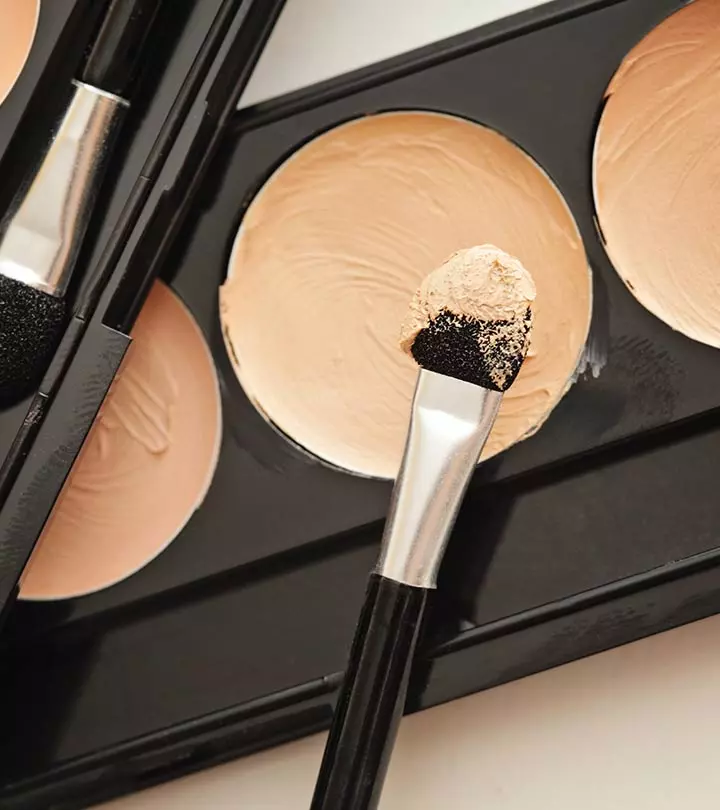


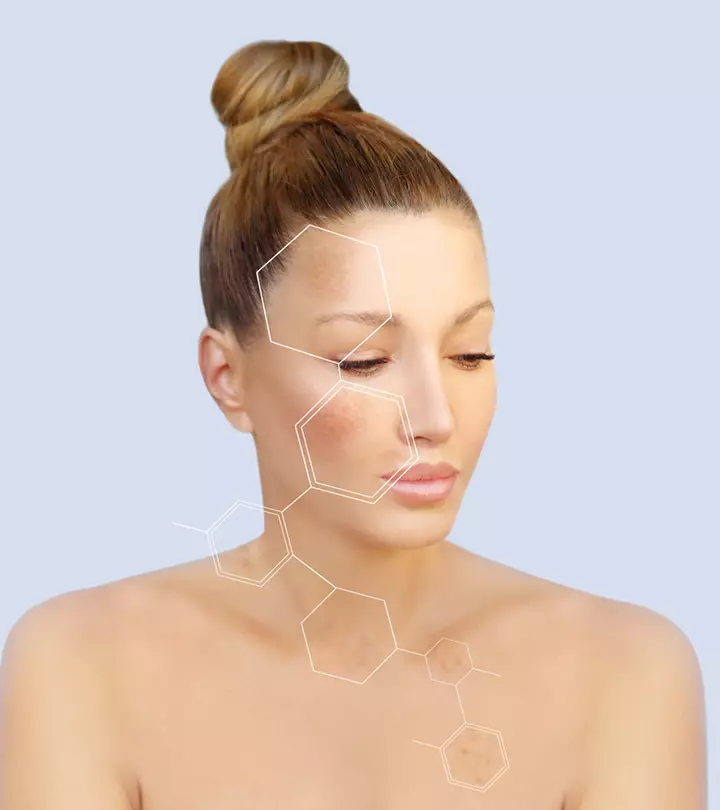
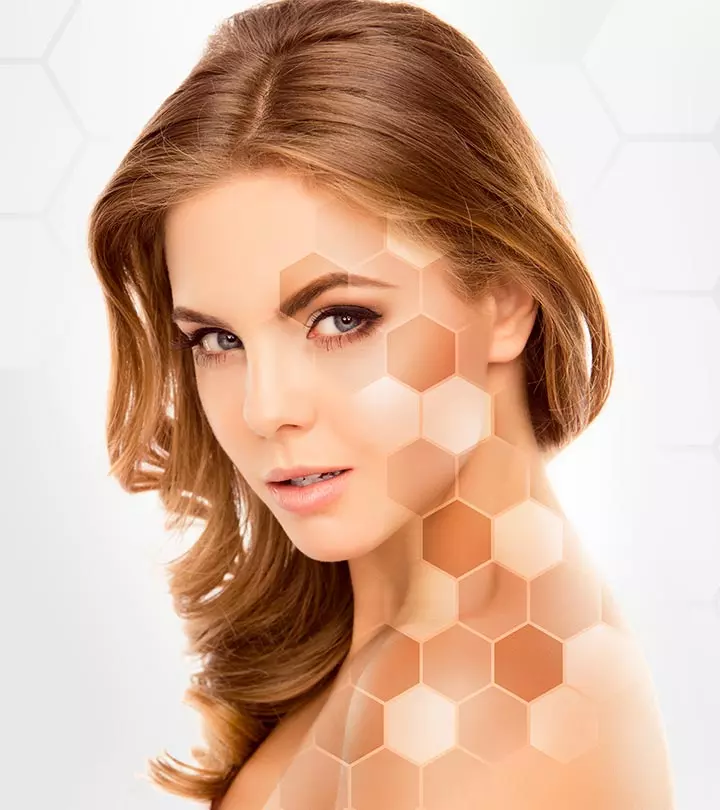
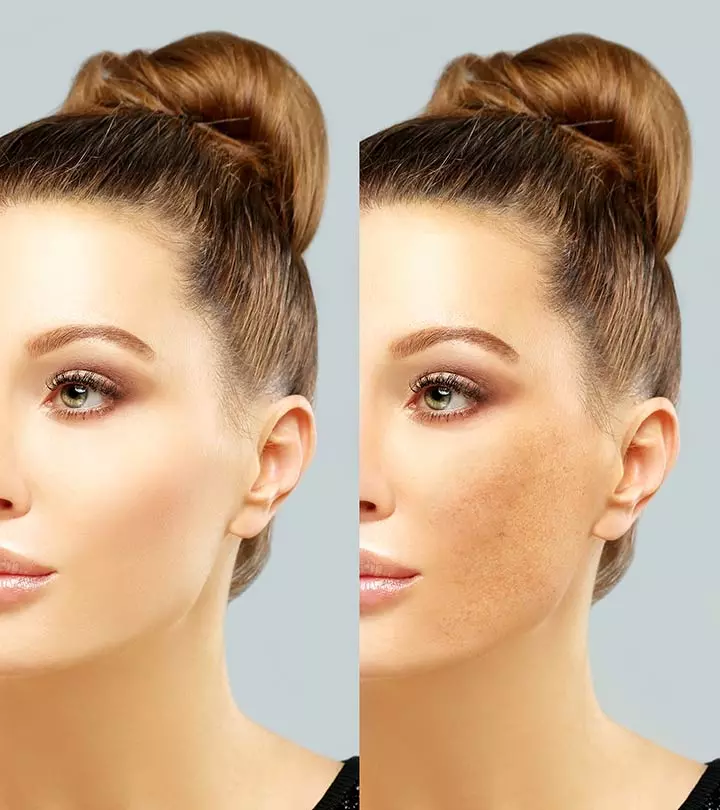
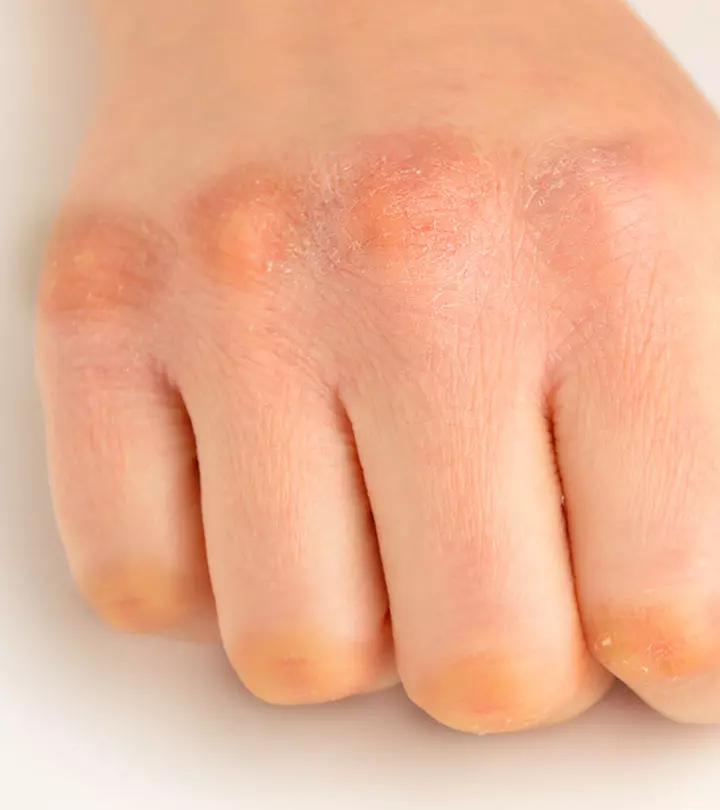
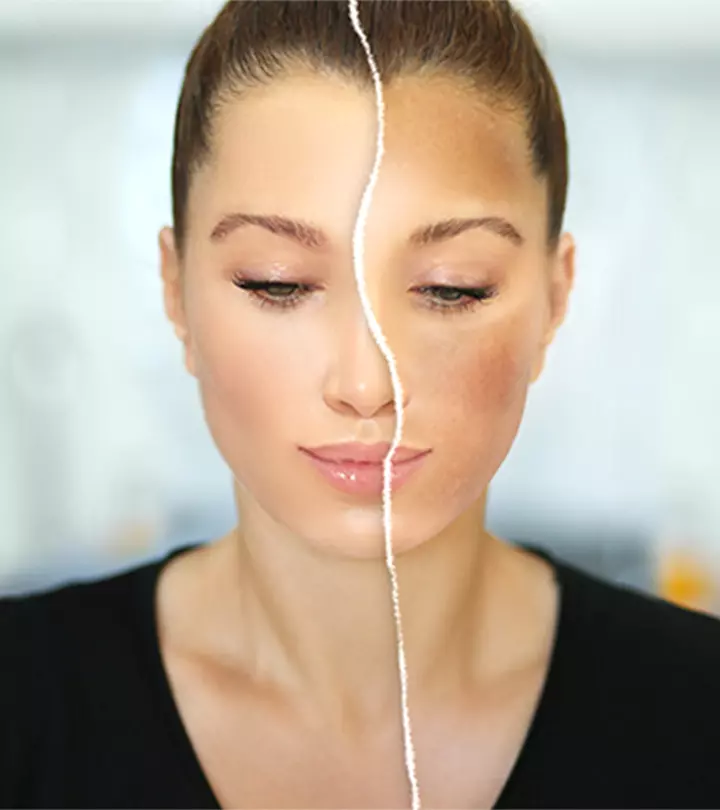

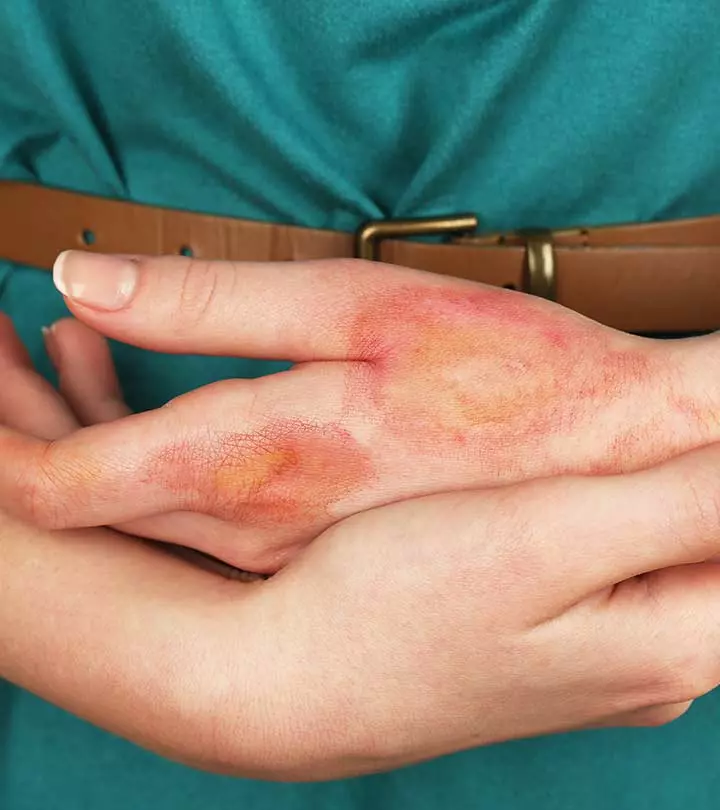
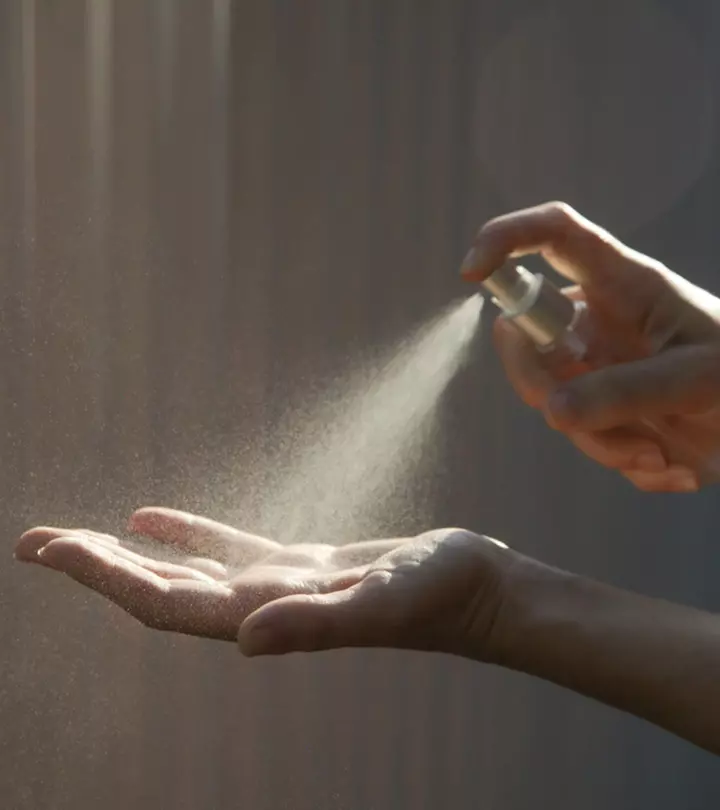
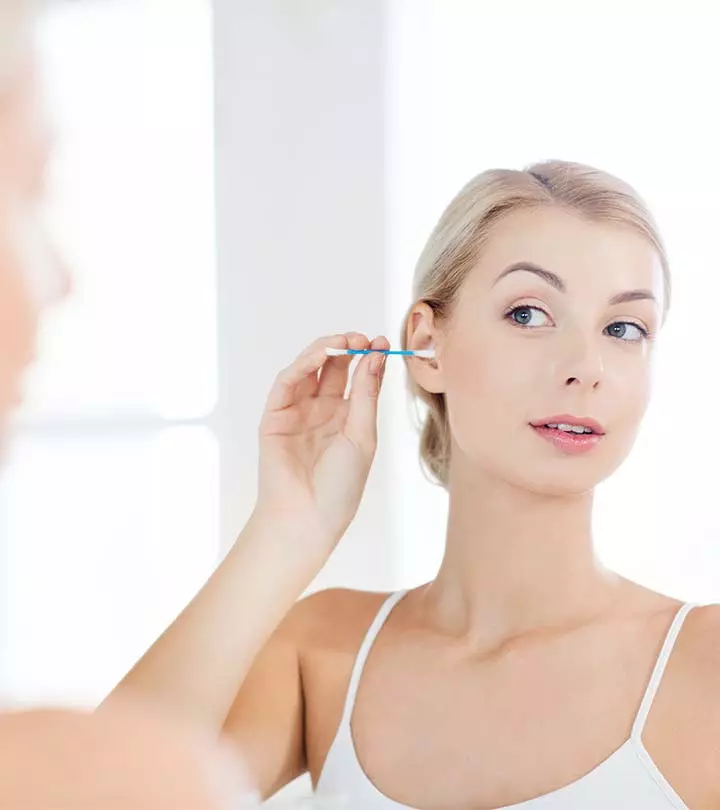

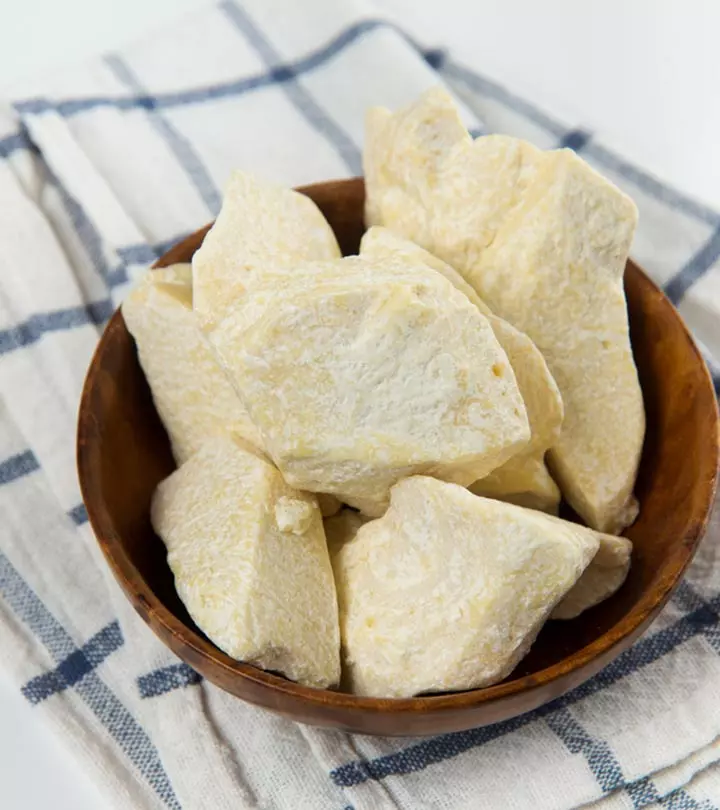
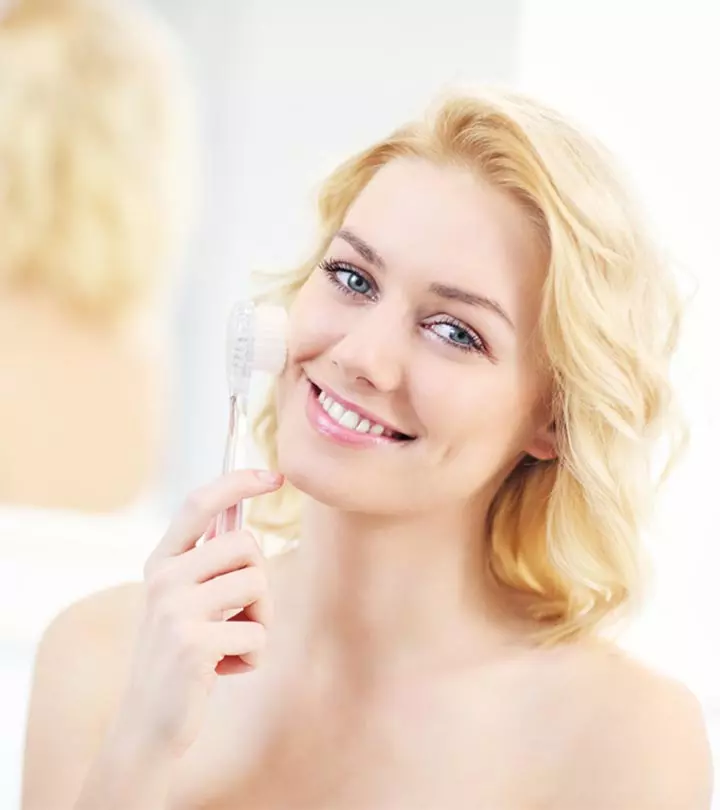
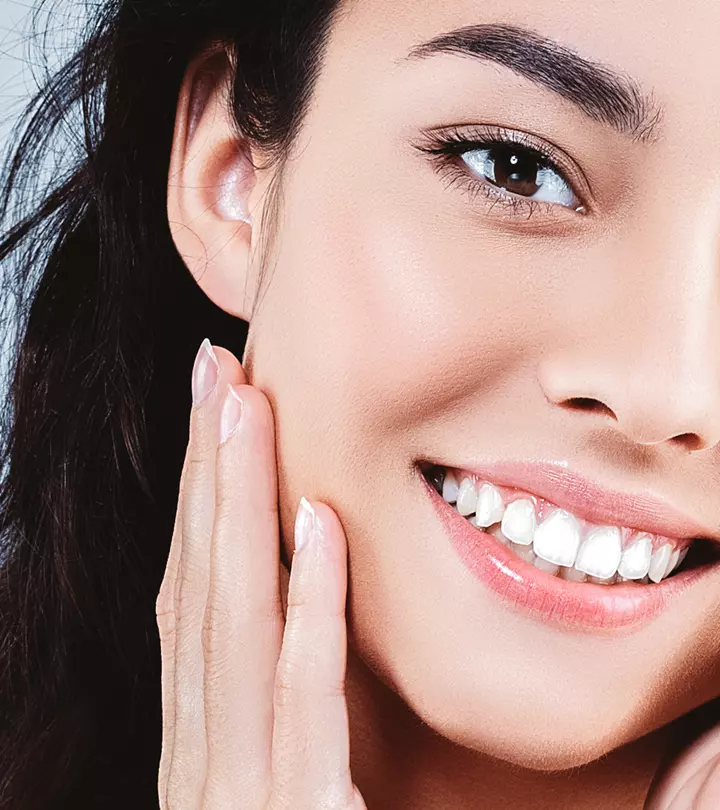
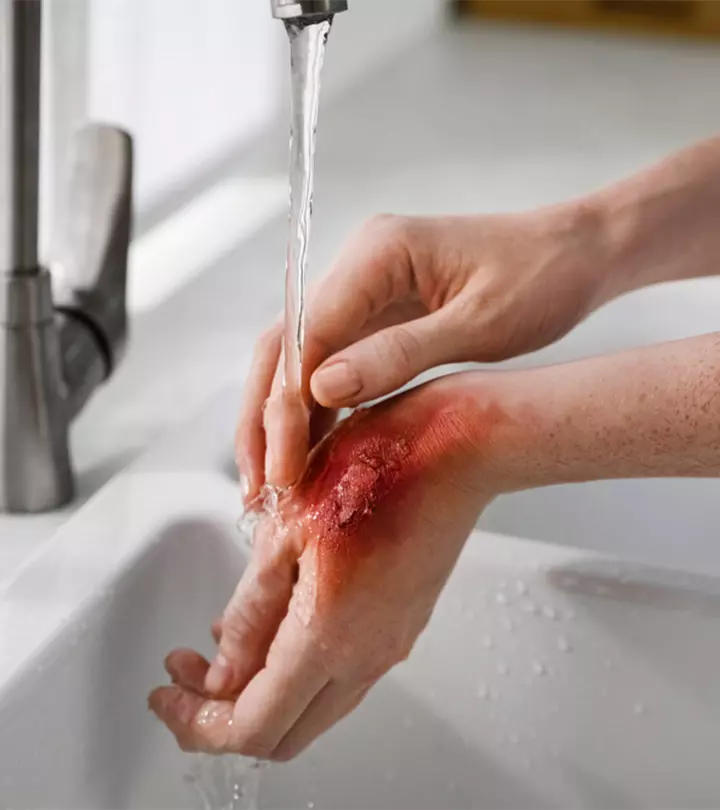
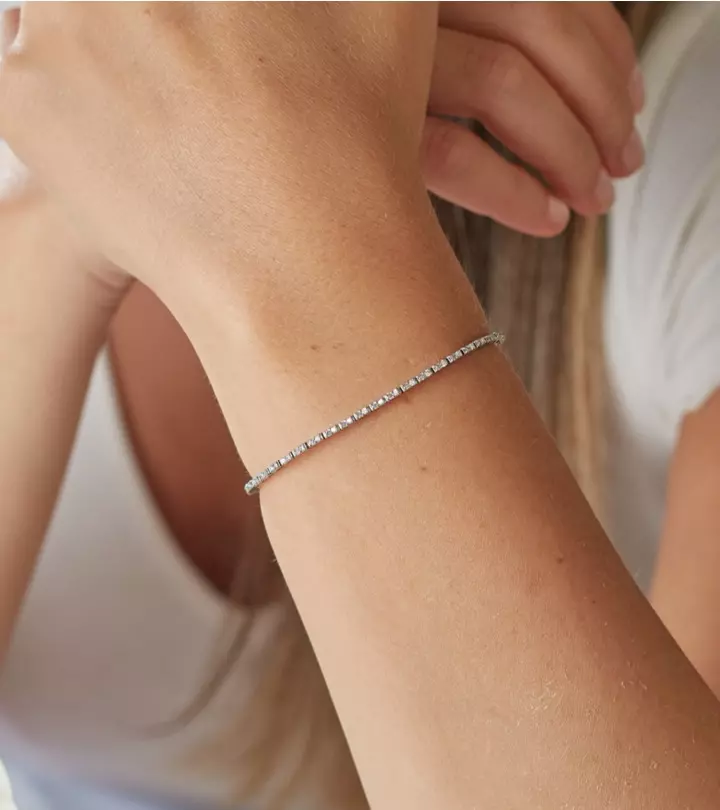
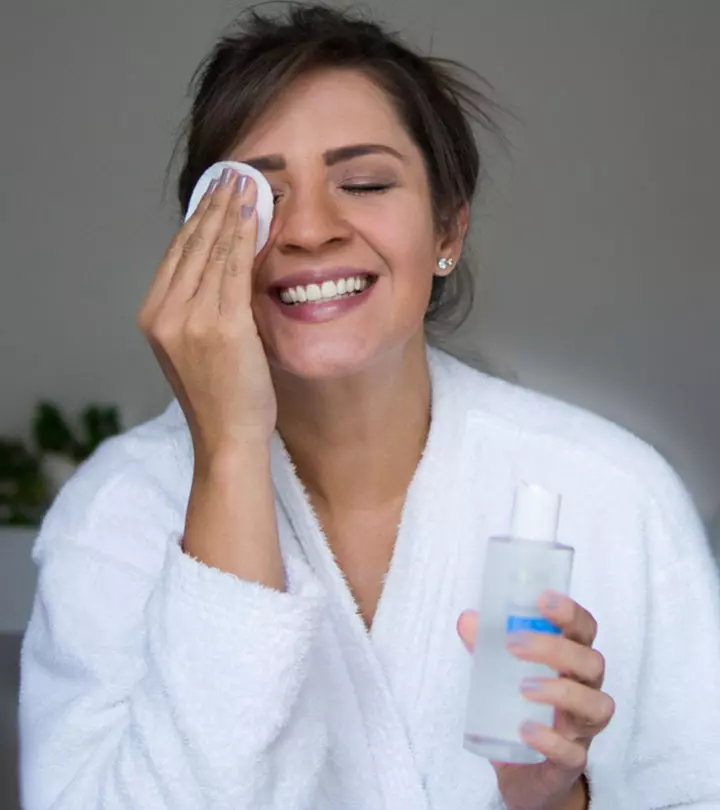
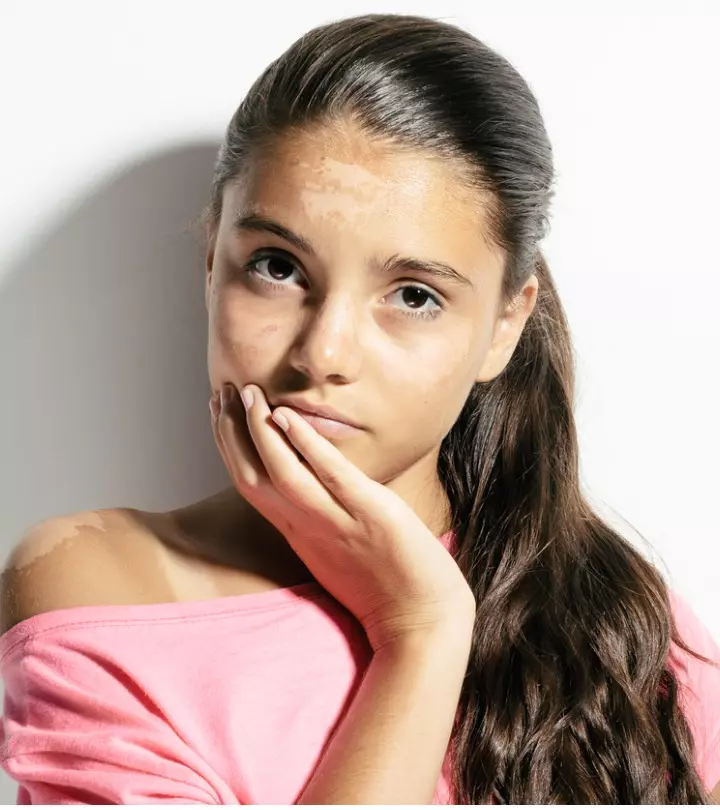

Community Experiences
Join the conversation and become a part of our empowering community! Share your stories, experiences, and insights to connect with other beauty, lifestyle, and health enthusiasts.